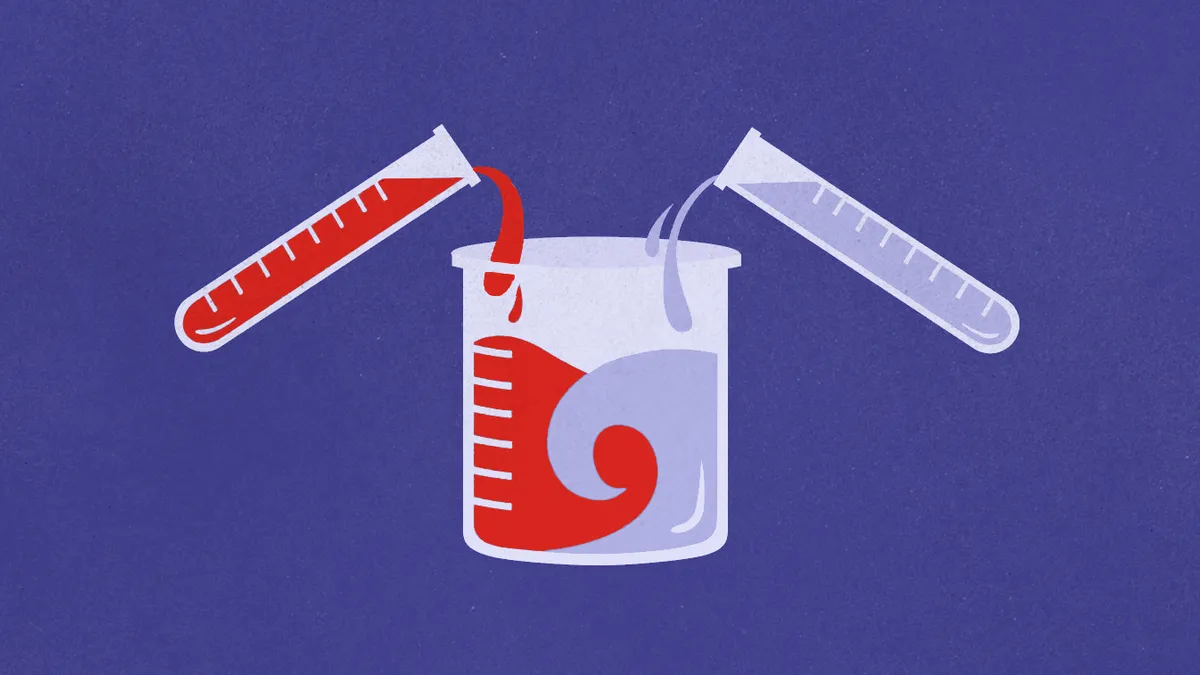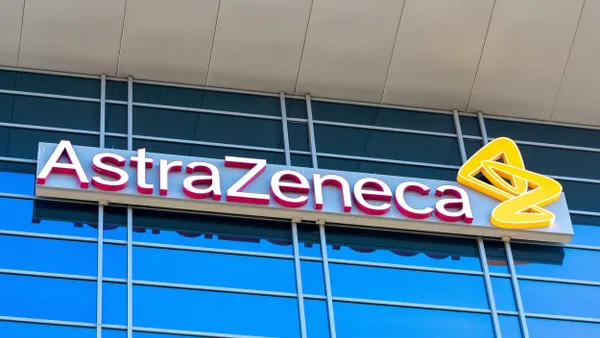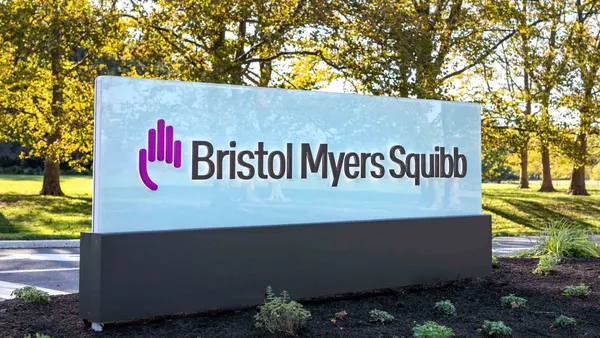Dive Brief:
- Boehringer Ingelheim is advancing biomarker-driven programs through a deal with Epizyme that could net the smaller company about $300 million, the companies announced Thursday.
- The deal focuses on two epigenetic targets linked with the development of cancer: enzymes in the helicase and histone acetyltransferase (HAT) families, previously thought to be "undruggable." The collaboration will develop drugs for certain patients with lung cancer and other solid tumors not likely to respond to currently available precision medicines. The two will share R&D costs for the two programs and split commercialization responsibilities.
- The announcement follows the lift of a partial clinical hold for Epizyme's tazemetostat in September. While the company's share value has steadily fallen from a peak of nearly $20 earlier this year, it climbed up 8% Friday morning to a share price of roughly $8.
Dive Insight:
For Boehringer Ingelheim, this relatively small deal adds another string to its oncology bow, extending its current focus on cancer cell- and immune cell-directed therapies, and is a reflection of big pharma's increasing interest in epigenetics.
To that end, the German drugmaker has used collaborations to expand its preclinical and clinical pipeline.
One example includes its acquisition earlier this year of ViraTherapeutics, which is developing viral-based therapies for cancer. It has tapped academic partnerships as well, such as a deal with Vanderbilt University to develop anticancer drugs based on the myeloid cell leukemia 1 protein, as well as an expansion of an existing immuno-oncology deal with the Sarah Cannon Research Institute to investigate an anti-PD-1 and SMAC mimetic combination.
For Epizyme, big pharmas agreements help to validate its epigenetics-based approach, in turn strengthening its hand when looking to set up additional deals. Besides Boehringer, the company has linked up with GlaxoSmithKline, Celgene and Roche's Genentech. Boehringer is providing Epizyme with cash too, which it could use for drug launches planned in the next two years.
Epizyme will get upfront and research payments totaling $20 million, with various milestones potentially worth more than $280 million. Should candidates reach the market, Epizyme will get a share of U.S. profits and tiered royalties on ex-U.S. sales for the helicase program and tiered royalties on worldwide sales for the HAT program.
"The specific target enzymes remain undisclosed, but … are currently in "development candidate" status. In addition, EPZM has identified biomarkers from which patients are most likely to benefit. We believe the helicase partnership is the first of its kind," said Michael Yee, a Jefferies sell-side analyst, in a Nov. 15 note to investors.














